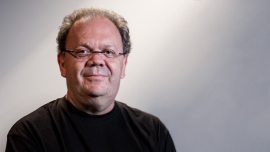Shoshana Zuboff, Harvard economist, was asked this question in 1981: "Will we all work for an intelligent machine or will that machine be used by intelligent people?".
A non-trivial question to which we could add: "What knowledge can prepare us so that tomorrow can be intelligently human?" The answer is neither easy, but some practical suggestions can be offered to keep our humanity in a habitat increasingly populated by "intelligent systems".
Head, heart and hands are the metaphor of an integral way of knowing and communicating; we could say: reason, feelings and action. The social bond is built through small gestures and responsibilities, and while continuing to use our electronic devices, perhaps with more awareness, we can improve the quality of relationships with small exercises of respect and mutual attention.
For example: anything that can be said face to face, avoid sending it by message, much less posting it. Even if you have to wait, waiting is a harbinger of wisdom. When we speak face to face we learn to know each other, we learn to manage the relationship. If you have problems with someone or with the world, don't let off steam on social media, but first try to understand where the anger comes from and then face someone face to face.
Much of the paranoia arises from a sense of loss of control and helplessness and aggression often arises from expressive poverty: if the spirit is not nourished, the flesh re-emerges violently.
For this poverty there are simple remedies. Instead of feeding the mind with a lot of chatter and banality, read a good book, a newspaper article, watch a good movie, meditate - why not?
Let us oppose the culture of haste via the culture of taking one's time; let us oppose the culture of superficiality with that of profundity.
I leave to the reader the task of creatively discovering other possibilities. From the point of view of communication, I remember that in life we inevitably communicate not only what we know, but also what we are.
Fr Fabio Pasqualetti, SDB
Source: Unisal


